On April 8, 2024, the Hoover Institution will host its second annual one-day conference on Markets vs. Mandates: Promoting Environmental Quality and Economic Prosperity. Building on Hoover’s founding principles of generating ideas that define healthy and free societies, the program will evaluate when, if, and how institutions and policies can improve environmental quality while also promoting economic prosperity and individual freedom. Experts from around the world in fields such as economics, philosophy, law, engineering, and communications will cover a range of topics including an assessment of the costs and benefits of climate policy, the morality of markets and mandates for the environment, and a comparison of academic findings versus rhetoric about environment conditions. The program will culminate with science writer and journalist, Bret Stephens, of the New York Times, who will be speaking on “Media Coverage of the Environment?” Refreshments will be served after the conference to give the audience time to mingle with the stellar cast. The conference is open to the public and registration is required.
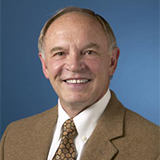
Terry L. Anderson has been a senior fellow at the Hoover Institution since 1998 and is currently the John and Jean De Nault Senior Fellow. He is the past president of the Property and Environment Research Center in Bozeman, Montana, and a professor emeritus at Montana State University, where he won many teaching awards during his twenty-five-year career. Anderson is the author of Free Market Environmentalism (published in its third edition in 2015) and one of the founders of the idea it espouses: using markets and property rights to solve environmental problems. Dr. Anderson received his PhD from the University of Washington in 1972 and has been a visiting scholar at Oxford University, Basel University, Clemson University, and Cornell University, and a Fulbright Fellow at the University of Canterbury.

Patricia Breuer is an assistant professor of accounting at the Erasmus School of Economics at Erasmus University Rotterdam and a research fellow of the TRR 266 Accounting for Transparency collaborative research center. She received her PhD from the University of Mannheim in 2023 and was a visiting PhD student at the University of Chicago Booth School of Business in the academic year 2021–22. Her research investigates the impact of financial and environmental reporting regulations on economic activity.

Caroline Cecot is an associate professor of law at Antonin Scalia Law School at George Mason University. Her research focuses on environmental and energy law, administrative law, and agency cost-benefit analysis. Her work has been published in peer-reviewed journals and law reviews, and she is co-author of an environmental law casebook. She has served on the US Environmental Protection Agency Science Advisory Board’s Economic Guidelines Review Panel and is the vice president of the Society for Benefit-Cost Analysis. Prof. Cecot holds a JD from Vanderbilt Law School and a PhD in law and economics from Vanderbilt University. She clerked for the Hon. Raymond J. Lohier Jr. of the US Court of Appeals for the Second Circuit, was a postdoctoral research scholar in law and economics at Vanderbilt Law School, and was a legal fellow at the Institute for Policy Integrity at New York University School of Law.
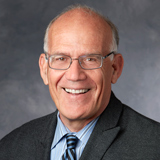
Victor Davis Hanson is the Martin and Illie Anderson Senior Fellow at the Hoover Institution, where he chairs the Role of Military History in Contemporary Conflict Working Group; professor emeritus of classics at California State University–Fresno, and the Wayne and Marcia Buske Distinguished Visiting Fellow in History at Hillsdale College. Hanson was awarded the National Humanities Medal in 2007 by President George W. Bush and was a recipient of the Bradley Prize in 2008. A scholar of ancient and modern warfare, Hanson is also a media commentator on contemporary politics, and also a farmer and a critic of social trends related to farming and agrarianism. He is the author of numerous books, most recently The Dying Citizen: How Progressive Elites, Tribalism, and Globalization Are Destroying the Idea of America (2021). His forthcoming book The End of Everything: How Wars Descend into Annihilation will be published in 2024.

Bård Harstad is the David S. Lobel Professor in Business and Sustainability and professor of political economy at the Stanford Graduate School of Business. At Stanford, he is also a professor at the Doerr School of Sustainability and a professor of economics (by courtesy) at the School of Humanities and Sciences. He previously held the Max McGraw Chair in Management and the Environment at the Kellogg School of Management and was a professor at the University of Oslo before coming to Stanford in 2023. He has also taught at Harvard, MIT, and Toulouse School of Economics. Harstad’s research interests are in environmental economics, political economics, and economic theory.
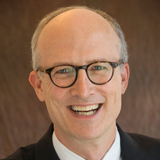
M. Todd Henderson is the Michael J. Marks Professor of Law at the University of Chicago, where he is also a lecturer at the Booth School of Business and a fellow of the Becker Friedman Institute. Henderson researches and writes on a wide range of topics and is the author of seven books, most recently Native Americans and the Supreme Court (2022). He has taught securities regulation, corporate law, financial regulation, banking law, torts, American Indian law, and derivatives, and has held seminars on numerous topics, including negotiations and libertarian thought. Henderson serves as an advisor to a venture capital fund and numerous start-ups and is a board member of several companies. He has served as a judge for the Financial Industry Regulatory Authority, a lawyer at Kirkland & Ellis, and a consultant and senior advisor at McKinsey & Company.
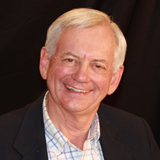
Peter J. Hill is a professor of economics emeritus at Wheaton College (Illinois) and a senior fellow at the Property and Environment Research Center in Bozeman, Montana, where he currently resides. He is the co-author of Growth and Welfare in the American Past (3rd ed., with Terry L. Anderson and Douglass North), The Birth of a Transfer Society (with Terry Anderson), and The Not So Wild, Wild West: Property Rights on the Frontier (also with Terry Anderson). He has also authored numerous articles on the theory of property rights and institutional change and has edited six books on environmental economics. His undergraduate degree is from Montana State and his PhD from the University of Chicago.
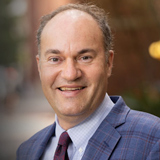
Matthew E. Kahn is a provost professor of economics at the University of Southern California. He is a research associate at the National Bureau of Economic Research and a research fellow at IZA (the Institute of Labor Economics). He has taught at Columbia University, the Fletcher School at Tufts University, the University of California–Los Angeles, and Johns Hopkins University and has served as a visiting professor at Harvard University, Stanford University, and the National University of Singapore. Kahn is a graduate of Hamilton College and the London School of Economics. He holds a PhD in economics from the University of Chicago.
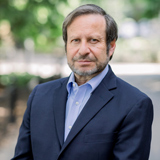
Steven E. Koonin, a senior fellow at Hoover and university professor at New York University, is the author of Unsettled: What Climate Science Tells Us, What It Doesn’t, and Why It Matters (a Wall Street Journal best seller). He has previously served as under secretary for science at the US Department of Energy; chief scientist for BP, moving the firm into renewable energy; and professor, vice president, and provost at the California Institute of Technology (Caltech). Koonin is a member of the US National Academy of Sciences and the JASON group of government advisors, a governor of Lawrence Livermore National Laboratory, and a trustee of the Institute for Defense Analyses. He holds a BS in physics from Caltech and a PhD in theoretical physics from MIT.

Ross Levine is a senior fellow at the Hoover Institution and a research associate at the National Bureau of Economic Research. Previously a faculty member at the University of California–Berkeley’s Haas School of Business, Levine now codirects Hoover’s Working Group on Financial Regulation. Levine’s research sheds light on how financial regulations and the operation of financial systems shape prosperity, including economic growth and stability, technological innovation, entrepreneurship, economic opportunities available to individuals, poverty, income distribution, and the environment. In addition to authoring or editing six books, he has published almost two hundred articles in premier economics, finance, and management journals. Levine’s research resonates beyond academia, shaping dialogue and policies at prominent international institutions such as the World Bank, the International Monetary Fund, and the European Central Bank.

Bjorn Lomborg is a visiting fellow at the Hoover Institution and a frequent commentator in print and broadcast media. With his think tank, the Copenhagen Consensus, he has worked with hundreds of the world’s top economists and seven Nobel laureates to find and promote the most effective solutions to the world’s greatest challenges, from disease and hunger to climate and education. For his work, Lomborg was named one of Time magazine’s one hundred most influential people in the world. His monthly column is published in many languages by dozens of influential newspapers across all continents. A best-selling author, Lomborg’s books include False Alarm: How Climate Change Panic Costs Us Trillions, Hurts the Poor, and Fails to Fix the Planet and The Skeptical Environmentalist. Dr. Lomborg holds a PhD in political science from the University of Copenhagen.
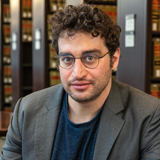
Joshua Macey is an assistant professor at the University of Chicago Law School. In July 2024, he will join the Yale Law School faculty as an associate professor. He teaches and writes about bankruptcy, environmental law, energy law, and the regulation of financial institutions. Macey’s scholarship has been published in legal journals including the Harvard Law Review, Yale Law Journal, and Stanford Law Review, and was awarded the Morrison Prize, for the most impactful sustainability-related legal academic paper published in North America, for three years in a row. He is co-author of the leading energy law casebook, Energy, Economics, and the Environment (6th ed.). Macey received his BA from Yale College, his MSc in political theory from the London School of Economics and Political Science, and his JD from Yale Law School, where he edited the Yale Law Journal.
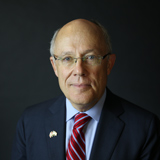
Mark Mills is the director of the National Center for Energy Analytics, a distinguished senior fellow at the Texas Public Policy Foundation, a contributing editor at City Journal, a faculty fellow at Northwestern University’s McCormick School of Engineering and Applied Science, and cofounding partner in venture fund Montrose Lane. His online videos at PragerU have been viewed more than ten million times. He is the author, most recently, of The Cloud Revolution: How the Convergence of New Technologies Will Unleash the Next Economic Boom and a Roaring 2020s. Mills served as chairman and CTO of Icx Technologies, helping take it public in 2007. Previously, after a career as an experimental physicist and development engineer in microprocessors and fiber optics, earning several patents, he served in the White House Office of Science and Technology Policy under President Reagan. He earned his physics degree from Queen’s University, Canada.

Dominic (Nick) Parker, the Ilene and Morton Harris Senior Fellow (adjunct) at the Hoover Institution is a professor of applied economics at the University of Wisconsin–Madison, where he serves editorial roles for three leading journals in environmental economics. Parker’s research appears in economics, science, and law journals and spans topics in development, environmental, and natural resource economics. It includes studies of property rights and environmental markets, resource booms and busts, land use, fishery and wildlife regulations, water trading, and renewable energy. Recent research on the unintended effects of US financial regulation on African mining communities and of wolves on deer-vehicle collisions has received widespread attention from media outlets including BBC News, the Wall Street Journal, the Associated Press, The Atlantic, and The Economist. He holds a PhD in economics from the University of California–Santa Barbara, where he was a National Science Foundation fellow in economics and environmental science.
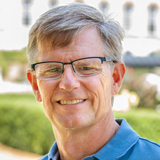
Daniel J. Phaneuf is the Henry C. Taylor Professor of Agricultural and Applied Economics at the University of Wisconsin–Madison. Prof. Phaneuf’s research in environmental economics focuses on valuing environmental goods, with applications to air quality, water quality, hazardous waste, and human health. He has published more than fifty academic papers in economics and general science outlets, and his research has been funded by organizations including the US Environmental Protection Agency, the US Department of Agriculture, and the National Oceanic and Atmospheric Administration. Phaneuf’s PhD-level textbook A Course in Environmental Economics was published in 2017. He served as the inaugural editor in chief for the Journal of the Association of Environmental and Resource Economists and currently edits the journal Land Economics. He was president of the Association of Environmental and Resource Economists (AERE) from 2019 to 2020 and was elected an AERE Fellow in 2022.
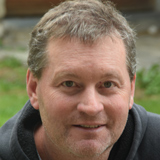
Roger Pielke Jr. is concurrently a nonresident senior fellow at the American Enterprise Institute and a professor in the College of Arts and Sciences at the University of Colorado Boulder. Pielke teaches and writes on a diverse range of policy and governance issues related to science, technology, environment, energy, climate, innovation, and sports. He was previously a scientist at the National Center for Atmospheric Research. His most recent book is The Rightful Place of Science: Disasters and Climate Change. Peilke holds degrees in mathematics, public policy, and political science, all from the University of Colorado.
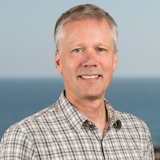
Andrew Plantinga is a professor at the Bren School of Environmental Science and Management at the University of California–Santa Barbara. Dr. Plantinga received a PhD in agricultural and resource economics from the University of California–Berkeley, an MS in forestry from the University of Wisconsin–Madison, and a BA from Grinnell College. His research focuses on the economics of land use, climate change, and forests, with emphasis on empirical modeling of land markets and the analysis of environmental policies that affect private land-use decisions. Plantinga frequently collaborates on interdisciplinary projects with researchers from ecology, hydrology, climate science, and other disciplines. He has published more than ninety journal articles in outlets that include the Journal of Political Economy, the Journal of the Association of Environmental and Resource Economists, the Journal of Environmental Economics and Management, Science, Nature, and Proceedings of the National Academy of Sciences.
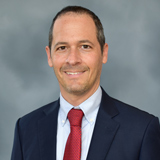
Joshua Rauh is the Ormond Family Professor of Finance at Stanford’s Graduate School of Business and a senior fellow at the Hoover Institution. He leads the Hoover Institution State and Local Government Initiative. He formerly served at the White House, where he was principal chief economist on the President’s Council of Economic Advisers (2019–20); and taught at the University of Chicago’s Booth School of Business (2004–9) and the Kellogg School of Management (2009–12). At the Hoover Institution, he has served as director of research (2018–19). Rauh studies government pension liabilities, corporate investment, business taxation, and investment management. He has testified before House, Joint, and Joint Select Committees of the US Congress. Prior to launching his academic career, he was an associate economist at Goldman Sachs in London. Rauh received a BA from Yale University and a PhD from the Massachusetts Institute of Technology, both in economics.
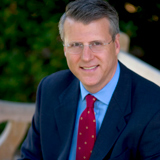
Peter M Robinson is the Murdoch Distinguished Policy Fellow at the Hoover Institution, where he writes about business and politics, edits Hoover’s quarterly journal, the Hoover Digest, and hosts the Hoover video series program Uncommon Knowledge. Robinson spent six years in the White House, serving from 1982 to 1983 as chief speechwriter to Vice President George Bush and from 1983 to 1988 as special assistant and speechwriter to President Ronald Reagan. He wrote the historic Berlin Wall address in which President Reagan called on General Secretary Mikhail Gorbachev to “tear down this wall!” Robinson is also the author of three books: How Ronald Reagan Changed My Life, It’s My Party: A Republican’s Messy Love Affair with the GOP, and the best-selling business book Snapshots from Hell: The Making of an MBA.
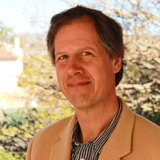
James Salzman is the Donald Bren Distinguished Professor of Environmental Law with joint appointments at the UCLA School of Law and the Bren School of Environmental Science and Management at the University of California–Santa Barbara. His broad-ranging scholarship has addressed a range of topics, including drinking water, policy instrument design, and creating markets for ecosystem services. He is one of the most-read environmental law professors in the world and also a dedicated classroom teacher, twice selected by students as professor of the year. He frequently appears as a media commentator and has delivered lectures on every continent. He has served as a visiting law professor at Columbia, Harvard, Stanford, and Yale universities. In addition to writing more than one hundred articles and book chapters, he is the author of twelve books, including Mine!: How the Hidden Rules of Ownership Control Our Lives and Drinking Water: A History.
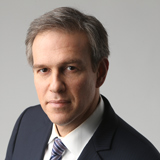
Bret Stephens is an opinion columnist for the New York Times and the founder and editor-in-chief of SAPIR, a new quarterly devoted to issues of Jewish concern. He has previously served as editor-in-chief of the Jerusalem Post and as foreign affairs columnist of the Wall Street Journal, where he was also deputy editorial page editor. Raised in Mexico City and educated at the University of Chicago and the London School of Economics, he is the author of America in Retreat: The New Isolationism and the Coming Global Disorder. He is the winner of the 2013 Pulitzer Prize for distinguished commentary and the 2019 Ellis Island Medal of Honor, and the recipient of three honorary doctorates. In 2022, the government of Russia banned him for life.







